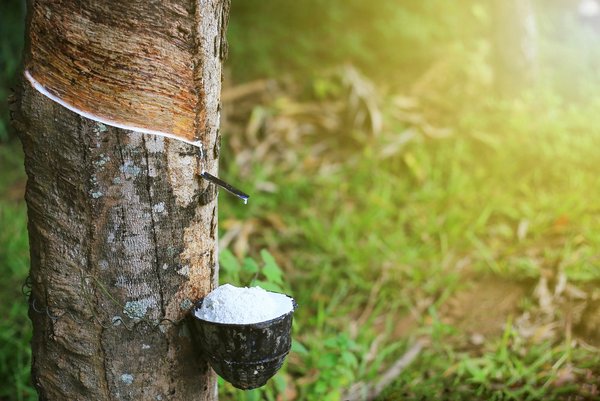- Share this article
- Subscribe to our newsletter
BMZ and Continental establish first digital backtracing of supply chain
For the first time, Germany’s Federal Ministry for Economic Cooperation and Development (BMZ) and the engineering company Continental AG have made a natural rubber supply chain continuously retraceable – from cultivation in Indonesia through processing to tyre production.
Presenting the joint project in August 2020, Germany’s Federal Development Minister Gerd Müller expressed his pleasure at pioneers like Continental demonstrating that social and ecological minimum standards can be monitored along the supply chain in the digital age. Müller stressed that with sustainable cultivation methods and a digital backtracing system, the project could contribute to halting the destruction of nature and improving smallholder income at local level.
“We need a change in thinking in the global economy in order to better protect people and nature,” the Minister emphasised.
Christian Kötz, head of the tyres field of business and member of the Continental AG Board of Directors, emphasised that creating sustainable and retraceable supply chains was a key element of Continental’s comprehensive sustainability strategy.
He further explained that in the context of the pilot project successfully established with the BMZ in Indonesia, retracing a natural rubber supply chain from cultivation through processing to Continental’s tyre factory in Germany had been achieved for the first time. Thus cooperation partners BMZ and Continental were jointly creating more transparency and making a significant contribution to securing the livelihoods of the smallholders involved in the project.
“Our goal is to successively develop electronic retraceability within our natural rubber supply chains and thus contribute to global improvements in the natural rubber sector,” Kötz emphasised.
The pilot project in West Kalimantan, Indonesia
Continental are collaborating with German development cooperation in Indonesia’s West Kalimantan, in Borneo. Kapuas Hulu District contains two national parks with extensive natural forests which have been designated as UNESCO Biosphere Reserves.
According to the BMZ press release, the project partners record all the steps in the supply chain with a digital retracing system. The 450 smallholders involved so far score significantly higher selling prices than usual for the high-quality natural rubber that they have produced. This is because they are trained in sustainable cultivation and applying improved technologies, e.g. with regard to how the trees have to be tapped to gain an optimum amount of rubber. Thus the smallholders can significantly increase their area yield and make longer use of the trees.
With the aid of the digital retracing system, a detailed evaluation of the production and the supply chain of the natural rubber can be conducted. The production areas, charted with GPS, the amounts of raw natural rubber to be delivered and the selling prices scored are recorded in the system as soon as supplies arrive at the store.
In addition, the system controls the amount of raw natural rubber in relation to the area under cultivation, the BMZ reports. If the amount delivered is in excess of the anticipated production volume, this gives the system a clue, and acting on it, staff members can prevent natural rubber from non-registered areas, such as illegally clear-cut areas, from entering the supply chain.
Both the BMZ and Continental are members of the Global Platform for Sustainable Natural Rubber (GPSNR), an alliance of the most important business and civil society actors in the natural rubber sector which was set up in March 2019. Together with further members, they are working on world-wide improvements in sustainability in the natural rubber sector.
(BMZ/wi)
More information:
Global Platform for Sustainable Natural Rubber (GPSNR)





Add a comment
Be the First to Comment